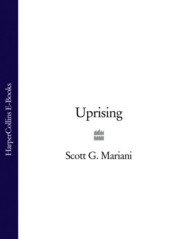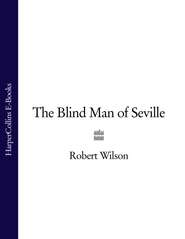По всем вопросам обращайтесь на: info@litportal.ru
(©) 2003-2024.
✖
A Small Death in Lisbon
Автор
Год написания книги
2019
Настройки чтения
Размер шрифта
Высота строк
Поля
‘How do you work that out?’ asked Carlos.
His aggression got the full reply.
‘I checked with the meteorological office before I came out. They told me the temperature didn’t get much below 20°C last night. The body would have cooled at around 0.75 to 1°C per hour. I recorded her body temperature at 24.6°C and found rigor mortis in the smaller muscles and just beginning in the bigger ones. Therefore my deduction, based on experience, is that you’re looking for someone who murdered her between five and six yesterday afternoon but it’s not an exact science as Inspector Coelho knows.’
‘Anything else?’ I asked.
‘Nothing under her nails. She was a nervy type. Hardly anything left of them. The nail on the index finger of the right hand was torn, by that I mean bloody . . . if that’s any help.’
Fernanda left followed by the ambulance men who were staggering across the beach and up the steps of the harbour wall, the body zipped up in its bag. I asked the PSP men to search the car park and then take a squad up the Marginal towards Cascais to the nearest pine trees. I wanted clothing. I wanted a heavy metal object or tool.
‘Give me your ideas, agente Pinto,’ I said.
‘Knocked unconscious in some pine woods, stripped, raped, strangled, thrown in a car, driven down the Marginal ultimately from Cascais direction, which is the only way in to this small car park, and dumped off the harbour wall.’
‘OK. But Fernanda said no violent entry.’
‘She was unconscious.’
‘Unless her murderer had the foresight to bring his own lubricant and condom there would be evidence . . . abrasions, bruising, that kind of thing.’
‘Wouldn’t a rapist think of that?’
‘He hits the girl from behind, smacks her head against a tree with a blow hard enough to kill her but he strangles her for good measure. My gut tells me that he was intending to kill rather than rape but I may be wrong . . . let’s see what Fernanda says in her lab report.’
‘Murdered or raped they took some risks.’
‘They? Interesting.’
‘I don’t know why I said that . . . fifty-five kilos isn’t that much.’
‘You’re right though . . . why dump her here? In full view of the Marginal . . . cars going up and down all night. Not that this part is particularly well lit . . .’
‘Somebody local?’ asked Carlos.
‘She’s not a local girl. The contact addresses for Catarina Oliveira are Lisbon and Cascais. And anyway, what’s local? There’s quarter of a million people living within a kilometre of where we’re standing. But if she did come here and meet a creep, why kill her in the pine trees and dump her on the beach? Why kill her in any pine woods in the Lisbon area and bring her here to this spot?’
‘Is it relevant that you live near here?’
‘I suppose you don’t know why you said that either?’
‘Possibly because you were thinking it.’
‘And you can read my thoughts . . . all on your first day?’
‘Maybe you’re revealing more than you think now your beard’s gone.’
‘That’s a lot to read off any man’s cheeks, agente Pinto.’
Chapter VI (#ulink_9507d82d-6cc5-505c-b466-2cb8960b44bf)
Saturday, 13th June 199–, Paço de Arcos, near Lisbon.
We worked the boatyard next to the harbour and came up with nothing. We crossed the Marginal using the underpass and talked to the people who were clearing up last night’s mess in the Bombeiros Voluntarios tent but none of them had been working the night shift. The restaurant/café in the gardens was closed. We walked up to the pine woods to see how the PSP men were getting on. They had the usual array of used condoms, syringes and bleached and tattered pornography. No such thing as an innocent pine wood in this area. I told them to bag the lot and send it up to Fernanda at the Institute of Forensic Medicine in Lisbon. Carlos and I went back to António and had some toast and more coffee.
At 08.30 I put a call in to Dr Aquilino Dias Oliveira who I assumed was the girl’s father and, given his two addresses in Lisbon and Cascais, was not engaged in the great financial struggle that the rest of us were. It was a Saturday so I tried the Cascais number first and thought I was wrong until he picked it up at the twelfth ring and groggily agreed to see us in half an hour’s time. We got into my black 1972 Alfa Romeo, which was not, as many thought, a classic car, just an old car, and it started without having to draw on any reserves of bravery. We headed west on the Marginal with Carlos pinned to his seat by the belt that was stuck at one length and for a girl Olivia’s size.
There were big fans of Cascais but I wasn’t one of them. It used to be a small fishing village with houses falling down steep cataracts of cobbled streets to the harbour and port. Now it was a town planner’s nightmare, unless you were one of the town planners who’d passed the numerous development projects in which case you’d be living in a dream elsewhere. It was a tourist town with an indigenous population of women who dressed to shop, and men who shouldn’t be allowed out of a nightclub. Real life had been stripped out and replaced with an international cosmopolitanism which appealed to a lot of people who had money, and about as many again who wanted to ease it away from them.
We rolled in past the supermarket, the railway station and an electronic signboard which told us that it was 28°C at 08.55 and we should get some insurance. The fish market was wrapping up for the morning. The lobster and crab pots were piled high in front of the Hotel Bahia. The fort, square and ugly, out on the point, dominated. I drove up a cobbled street at the back of the town hall and turned into a tree-lined, heavily-shaded square, cool and sombre with wealth, in the old part of town. Dr Oliveira’s traditional villa on two floors was large and silent in the breathless morning. Carlos Pinto sniffed like a dog that’s picked up the whiff of the first possible scrap of the day.
‘Pine,’ he said.
‘The pine needle angle could be a lot of work in this area, agente Pinto.’
‘There’s a pine tree in the back garden,’ he said looking down the side of the house.
We let ourselves in by the front gate and went past a pillar of red bougainvillea to the back of the house. The pine tree was huge and shut out the light to the garden. The floor beneath it was a perfect brown carpet of dried needles.
‘Put your foot on that,’ I said.
Carlos’ foot crunched through a couple of inches of needles.
‘I don’t think you could kill someone on that and leave it . . .’
‘Bom dia, senhores,’ said a voice behind us. ‘And you are . . .?’
‘We were admiring your pine tree,’ said Carlos, electing to be the idiot.
‘I’m going to cut it down,’ said the thin, tall, erect man with white brilliantined hair, combed in rails off a high forehead and curling at the collar. ‘It kills the light in the back of the house and makes the maid feel gloomy. You are the Polícia Judiciária, I take it?’
We introduced ourselves and followed him into the house. He wore a lightweight, English checked shirt, grey slacks with turn-ups and brown loafers. He walked with his hands behind his back and stooped a little like a thoughtful priest. The parquet-floored corridor was lined with portraits of ancestors depressed at being cooped up in the dark. His study had more parquet flooring and Arraiolos carpets of some quality and antiquity. His desk was large and made out of walnut and had a brown leather chair behind it which was shiny where he’d buffed it with his back. Four lamps, supported by polished women carved from jet, provided light. The red bougainvillea outside had eclipsed the sunshine. He sat us down at a three-piece suite in a book-lined corner of the room. Only a lawyer would have so many books in the same bindings. An ormolu clock ticked as if each tick was going to be its last.
Dr Oliveira was in no hurry to talk. As we sat down he fitted his dark-skinned face into a pair of bifocals and searched his desk for something he didn’t find. The maid came in and laid out coffee without looking at us. There was a photograph of the dead girl on a shelf squeezed in between some old paperbacks, thrillers, written in English.
Catarina Oliveira was smiling at the camera. Her blue eyes were wide open but they didn’t match what her mouth was doing. Something tightened in my chest. I’d seen the same look in Olivia’s eyes after I’d told her that her mother was dead.
‘That’s her,’ said Dr Oliveira, his white eyebrows jumping over the frames of his bifocals.
He was old for the father of a fifteen-year-old girl – late sixties in his body and more than that in the lines and creases of his face and neck. He should have been trying to remember the names of his grandchildren. He leaned forward and picked out a small cigar from a jade box on the desk top. He licked his lips which became the colour of pig’s liver and screwed the cigar between them. He lit it. The maid rattled a coffee cup down in front of him and reversed out of the room.
‘When did you last see her?’ I asked, putting the photograph back.
‘Thursday night. I left my Lisbon house early on Friday morning. I had to get to my office to prepare for a day in court.’
‘What sort of law do you practise?’
‘Corporate law. Tax. I’ve never done criminal work if you think that’s relevant.’











